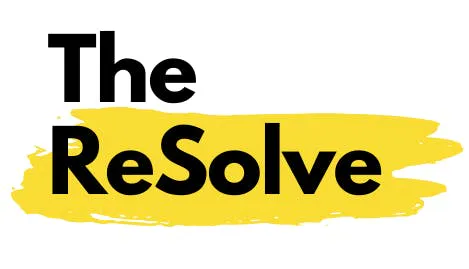
We are thrilled to launch the first issue of ‘The ReSolve’ and to share it with you on Steady and directly in your mailbox! 🙂
This publication will take you on a year-long tour of carefully curated solutions for social justice gathered from all-over Europe. Each month, we will showcase a selection of stories, actors and initiatives around one specific topic (see the full list here (Opens in a new window)).
But that’s not all, we want to hear about YOUR world as well 🌍! Whatever the format, language or date, share your solutions with the Community of ReSolvers on your preferred platform: Instagram (Opens in a new window) / Facebook (Opens in a new window) / Twitter (Opens in a new window) / Email (Opens in a new window)
We will gather and publish them in a follow-up ‘Community Edition' on January 30th - stay tuned!
Issue #1 - January 2022 Migration & Integration
Forever crisis. Migration is a salient public policy issue that is too often politicized, polarized, and presented without nuance. When reading about migration in Europe, we can count the plethora of articles covering the ‘crisis’ and related alarming headlines: ‘tensions’, ‘waves’, ‘surge’, ‘threat’, among others. While migration is certainly one of the key challenges of our time, how many media articles will also mention the actors and initiatives already in place to address the next steps of the ‘crisis’? How many will go beyond events, facts and figures to explore ideas, solutions and opportunities?
A new narrative. When looking more closely, each of us can come across numerous actors and initiatives that are actively working to help both newly arrived migrants and local communities. They show us that helping others is not a zero-sum game and that it might be possible to promote a better society for people on the move as well as for those who meet them.
The solutions highlighted below are all building blocks of a more welcoming and inclusive Europe. The selected stories show how local governments and associations respond to national governments’ failure to deliver on the issue of migration by taking the matter into their own hands. Sometimes, all it takes is a helping hand, and the actors presented below have done just that - each in their own way. Since we believe that everybody can be a changemaker, the initiatives listed below are proposing concrete steps to break artificial barriers and promote meaningful intercultural connections.
Solve the news. By sharing this content with you, we hope to provide a more engaging and hopeful view of migration and integration in Europe, one that puts drama aside and focuses on what is being - and can be - done. Ultimately, we hope to help #solvethenews (Opens in a new window) and tell #thewholestory (Opens in a new window) on this complex topic.
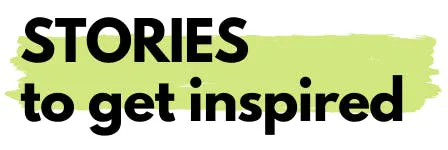
✍️ “Czech City Eases Burden on Migrants (Opens in a new window)”
by Fatima Rahimi for Transitions in Brno, Czech Republic on 26 Feb 2021
Misunderstanding between newcomers and public institutions is frequent, putting pressure on both sides and sometimes resulting in conflicts that could be avoided. In Brno, intercultural city workers have been active since 2017 and act as bridges between public institutions and Arab, Moldovan or Vietnamese communities (among others). They foster inclusion by helping immigrant communities learn the social norms while informing public institutions about the needs of these vulnerable communities.
Several other cities are taking a similar approach. This research from the University of Oxford has compiled responses to the question “Irregular Migrants in European Cities: How to respond? (Opens in a new window)” from cities such as Amsterdam, Barcelona, Frankfurt, and Utrecht, among others. Eurocities also has many relevant stories to tell on how cities in their network have focused on integration, such as in Solna (Opens in a new window) or Thessaloniki (Opens in a new window).
✍️ “LGBTQ Refugees Carving Out Their Path to Integration (Opens in a new window)”
by Federica Di Sario for Are We Europe in Cologne, Germany on 24 June 2021
Queer migrants often feel out of place and ill-served by traditional organisations that might not understand the additional violence and trauma they have endured. Spektrum is a self-organized LGBTQ+ migrant organization which provides a space of belonging and targeted counseling. The group was invited to help organize Cologne Pride and has advised the city on the lack of adequate social services in some neighborhoods.
Luckily, we start hearing similar stories in other places, such as in Brussels, (Opens in a new window)where the city plans to open four new shelters for homeless young people from the LGTBQ community.
📹 “So You Think You Can Stay (Opens in a new window)”
by Fantefilm for Norwegian Organization for Asylum Seekers (NOAS) in Norway on 28 May 2015
https://www.youtube.com/watch?v=E0vd-8pAl_g&feature=emb_title (Opens in a new window)For human rights organizations, it’s often difficult to raise awareness on the potential arbitrariness of the asylum application system due to its complexities, in Norway or elsewhere. This powerful campaign film by NOAS uses a spoof talent show format to highlight the refugee process in Norway and to give visibility to a group of people who are most often presented as numbers in an overwhelmingly negative media coverage.
🎧 “From the sea to the City (Opens in a new window)”
by Sithis Yim Samnang for Cities of Refuge Podcast in October 2021
https://open.spotify.com/episode/5UYeG1AO5dR1uKZ0b1EVhY?go=1&sp_cid=5cf8439d0bee1962f111ed8328a8ce6d&utm_source=embed_player_p&utm_medium=desktop&nd=1 (Opens in a new window)At EU-level, it has become clear that the political decision is to concentrate the burden of asylum seekers in hotspots and camps with many of them in a few cities along the Mediterranean (inside or outside the EU). In reaction, 33 European cities came together, in June 2021, and signed a declaration to better manage the distribution of refugees across the EU. “We rely on a wide distribution among many cities, which distributes the burden for the individual city through the power of a broadly supported alliance," the declaration reads.
This story is also covered in an article on infomigrants (Opens in a new window), a reliable news source for migrants to counter misinformation at every point of their journey (available in French, Arabic, English, Dari and Pashto).
📔 (Opens in a new window) “Outside the Box” (Opens in a new window)
by Sabba Khan for PositiveNegatives and SOAS in the UK on August 2020
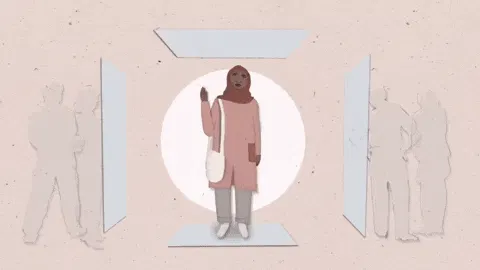
In its war against radicalization, the British government has put in place ‘Prevent’, a national counter-terror programme. However, research shows that it pushes for self-censorship and discourages discussion about culture, identity and religion – especially, but not exclusively, about Islam. This cartoon, and the related research at SOAS about Re/presenting Islam on Campus (Opens in a new window)promotes mutual understanding and deeper exchange about how religion plays out in the education system. It sheds light on how Islam is understood and experienced on UK university campuses.

Asher Craig
Deputy Mayor in Bristol, UK
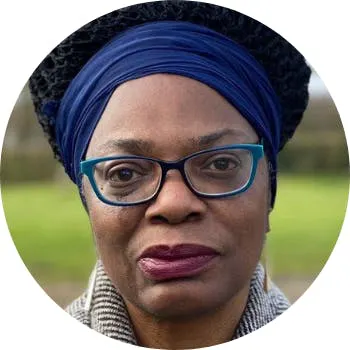
At the age of 19, Asher marched to her local council to denounce the under-representation of black people and women in all spheres of life. Now, 30 years later, she is the Cabinet Member for Children, Education & Equalities at the Bristol City Council and has worked tirelessly on the socio-economic development of ethnic minorities and under-represented communities.
Follow her action via Twitter (Opens in a new window), Facebook (Opens in a new window) and on the Bristol (Opens in a new window) official website.
Cédric Herrou
Farmer and activist in La Roya, France
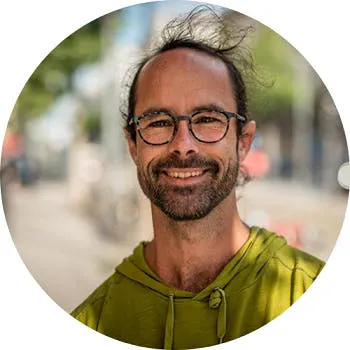
"It's not up to me to make a distinction between black and white, people with or without papers. It's not my job. Farming is what I do, my job is feeding people and that's what I do."
Cédric's efforts to help migrants in the Roya Valley have ultimately led to the consecration of the 'constitutional principle of fraternity and the freedom to help others for a humanitarian purpose' by the French Constitutional Council, now an important milestone for those promoting solidarity in the country.
Follow his action via Twitter (Opens in a new window), read his latest book (Opens in a new window) (in French), watch documentaries about him on Youtube (Opens in a new window) and support Emmaus Roya (Opens in a new window).
Mehdi Kassou
NGO Spokesperson and active citizen in Brussels, Belgium
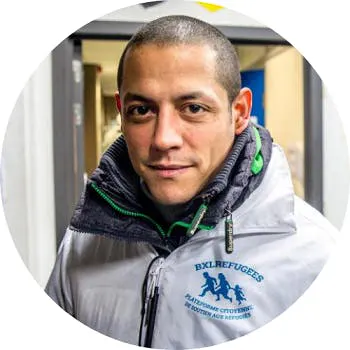
"I'm the happiest man in the world when I see a migrant coming off the street."
In reaction to Belgian authorities letting countless 'transmigrants' in limbo in Brussels, Mehdi quit his job and helped create the 'Plateforme citoyenne de soutien aux réfugiés', a network of 10,000 citizen providing accommodation, allowing around 250 migrants to sleep warm every evening.
Follow his action via Facebook (Opens in a new window), Twitter (Opens in a new window), and on the website of Bxlrefugees (Opens in a new window).
Anila Noor
Feminist ecosystem builder in Netherlands and Pakistan
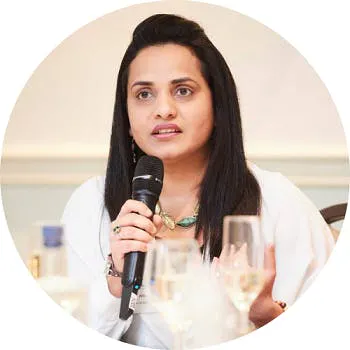
“Most of the time, in most instances, decisions about migrants are taken without them.”
The work of Anila has allowed many migrants, particularly migrant women, to sit at the table with decision-makers and to reflect more precisely (and personally) their point of view in local, national and European policies.
Follow her action via Linkedin (Opens in a new window) and Twitter (Opens in a new window), and on the website of New Women Connectors (Opens in a new window).
Ahmad Sufian Bayram
Entrepreneur and communication consultant in Europe and Syria
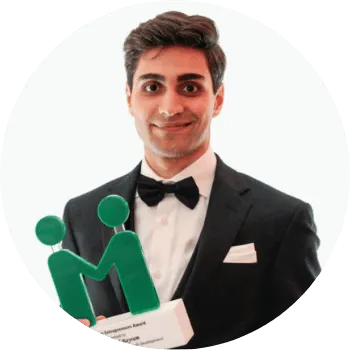
Having started a company of customised gifts, Ahmed was obliged to put a halt to his activity due to the start of the Syrian conflict. Now, Ahmed is working to foster entrepreneurship in the Middle East and supporting refugee entrepreneurs in Europe.
Follow all his activities and projects on his own website (Opens in a new window).

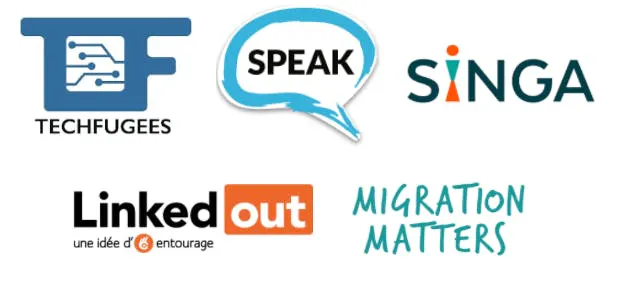
Join meetups and hackathons organised by Techfugees (Opens in a new window) to connect with organisations and individuals using technology to solve challenges faced by refugees.
Laugh in every language with SPEAK (Opens in a new window) by becoming a buddy, an ambassador or by creating a new chapter in your own city.
Participate in a Singa (Opens in a new window)event near you (dance lessons, ping pong game, expo visits, etc.) to meet a multicultural community and support local entrepreneurs.
Share your professional network with those who don't have one on LinkedOut (Opens in a new window), which helps excluded and vulnerable people to find work.
Spread far and wide the bite-sized videos of Migration Matters (Opens in a new window) to support more nuanced and evidence-based conversations about migration in the general public.
We hope you found this content inspiring!
👍 You can support us via Steady (Opens in a new window)
💬 You can discuss and engage with our Community of ReSolvers: Instagram (Opens in a new window)/ Facebook (Opens in a new window) / Twitter (Opens in a new window)/ Email (Opens in a new window)
💛 You can also simply tell a friend about us


